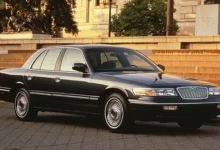2013 Nissan Altima Shift Lock Solenoid Recall: Everything You Need to Know
The shift lock solenoid is a small yet crucial component of any automatic vehicle, including the 2013 Nissan Altima. It ensures that the vehicle stays safely in park when the engine is off, preventing accidental roll-aways. However, like any mechanical part, it is not immune to failure. In 2013, Nissan faced a significant issue leading to the 2013 Nissan Altima shift lock solenoid recall. Let’s explore what this recall entailed, the causes, and what Altima owners should know.
What is a Shift Lock Solenoid?
Before diving into the recall, it is essential to understand what a shift lock solenoid does. The shift lock solenoid is part of the vehicle’s safety mechanism, designed to prevent shifting out of the ‘Park’ position without pressing the brake pedal. This prevents unintended movement, especially on inclines or uneven surfaces. If the solenoid malfunctions, it can cause difficulty in shifting gears, leading to potential safety issues.
The 2013 Nissan Altima Shift Lock Solenoid Recall Explained
The 2013 Nissan Altima shift lock solenoid recall was initiated because of issues related to the gear shift mechanism. Many Altima owners reported being unable to shift out of ‘Park,’ even when the brake pedal was pressed. This malfunction was traced back to a faulty shift lock solenoid, which would fail intermittently. Affected drivers often experienced moments of frustration as they struggled to move their vehicle, creating safety concerns if the issue occurred in busy traffic or emergency situations.
The recall mainly covered the 2013 Altima models, which had been experiencing a higher-than-expected rate of shift lock solenoid failures. Nissan identified the problem and recognized that the malfunction could increase the risk of accidents or vehicle immobility.
How and Why Was the Recall Initiated?
The recall was prompted by a growing number of complaints from Altima owners experiencing issues with their gear shift. After investigating these complaints, Nissan determined that the shift lock solenoid was prone to failure due to a manufacturing defect. The recall officially began after Nissan filed a report with the National Highway Traffic Safety Administration (NHTSA).
- Recall Date: The recall for the shift lock solenoid was officially launched in 2013, shortly after the vehicle’s release.
- Affected Vehicles: All 2013 Nissan Altima models were potentially affected, specifically those equipped with an automatic transmission.
- Reason for Recall: The main issue was the inability to shift out of ‘Park’, potentially leading to safety concerns and the inability to drive the car.
Manufacturer’s Response and Solution
Nissan responded to the shift lock solenoid issue by offering a free repair or replacement service to affected Altima owners. The fix typically involved replacing the faulty solenoid or updating the shift lock mechanism to prevent further malfunctions. Owners of the 2013 Altima received official notifications with instructions on how to proceed, ensuring that the vehicles were promptly and safely serviced.
If you own a 2013 Nissan Altima, checking if your vehicle is included in the recall is simple. You can enter your Vehicle Identification Number (VIN) on Nissan’s official recall website or consult the NHTSA database to find out if your car needs the repair.
Real-World Impact and Owner Experiences
The 2013 Nissan Altima shift lock solenoid recall had a noticeable impact on Altima owners. Many reported being stranded or unable to move their vehicle from a parking spot, leading to significant inconvenience. Some owners experienced the issue intermittently, causing anxiety and making the driving experience unpredictable.
Complaints were commonly shared on Nissan owner forums, with some drivers mentioning that the problem could temporarily be solved by applying additional pressure to the brake pedal or shifting the gear lever back and forth. However, these makeshift solutions were not reliable, and the only permanent fix was having the shift lock solenoid repaired or replaced under the recall.
How to Check if Your 2013 Nissan Altima is Affected
If you suspect your 2013 Altima might be part of the recall, it’s crucial to confirm and address the issue to ensure safe driving. Here’s what you can do:
- Locate Your VIN: The VIN can be found on the driver’s side dashboard or on official documents such as your car registration.
- Visit the Nissan Recall Website or NHTSA: Both platforms allow you to enter your VIN and check if your vehicle is affected by the recall.
- Contact Your Local Nissan Dealer: If your car is part of the recall, contact a Nissan dealership to schedule a free inspection and repair. Dealers have all the necessary parts and tools to replace the faulty shift lock solenoid and ensure your Altima is safe to drive.
Long-Term Implications of the Shift Lock Solenoid Issue
The malfunctioning shift lock solenoid in the 2013 Nissan Altima had potential long-term effects. If left unaddressed, this issue could lead to safety risks, such as not being able to shift into gear when needed or the vehicle becoming stuck in ‘Park’. Additionally, a faulty shift lock solenoid can affect the vehicle’s resale value and overall reliability.
For current owners, addressing the recall is essential to maintain the vehicle’s performance and safety. By getting the issue fixed promptly, owners can ensure their Altima operates smoothly without risking being stranded or facing unexpected repair costs in the future.
Conclusion
The 2013 Nissan Altima shift lock solenoid recall brought to light a significant safety concern affecting the gear shift mechanism. Nissan’s response to the issue ensured that owners could have their vehicles repaired promptly, preventing potential accidents and maintaining vehicle reliability. If you own a 2013 Altima, be proactive and check if your vehicle is affected by the recall, and make sure to get the necessary repairs to avoid any safety issues.



